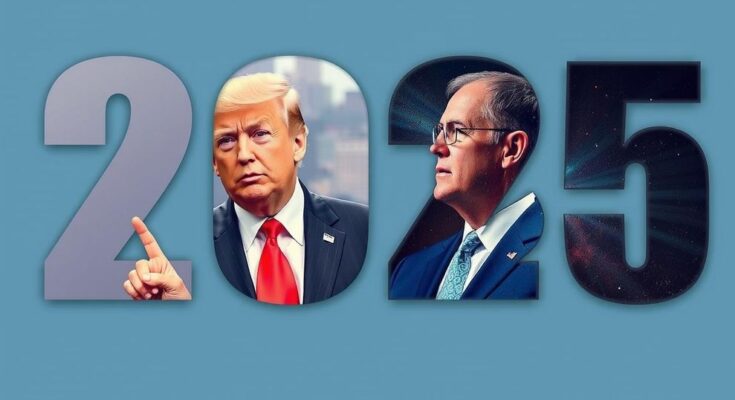The year 2024 marked significant electoral challenges for incumbents in developed democracies, with a notable shift in voter sentiment from loyalty to demands for change, largely driven by inflation. This trend appears to forecast continued struggles for ruling parties in 2025 across key elections.
2024 has been characterized as an unprecedented year for incumbents, as they faced significant losses in the electoral landscape. This trend represents the largest decline in vote share for ruling parties across developed nations in recorded history, as reported by the Financial Times. Voters have shifted from a sense of loyalty towards incumbents to a desire for change, as evidenced by Kamala Harris’s struggle due to her association with President Joe Biden’s policies.
In wealthy democracies, incumbents once enjoyed substantial advantages; however, recent political dynamics reflect increased volatility similar to those observed in emerging democracies. Professor Ben Ansell of the University of Oxford noted that the experience of incumbents in affluent nations has become akin to that of those in less stable democracies, making their positions precarious. This transformation implies a notable shift in voter sentiment towards seeking alternatives.
The primary driver of incumbent failures in 2024 appears to be inflation, as economic hardships arose from the post-pandemic recovery and geopolitical crises, specifically Russia’s invasion of Ukraine. Voters hold governing parties accountable despite the global nature of these crises. Economists highlight that inflation is universally more resented than unemployment, steering voters towards dissatisfaction with incumbents, leading to their electoral demise.
Interestingly, successful attempts to tackle inflation, such as the price controls implemented by Mexico’s ruling party, could provide insights for future incumbents. As inflation stabilizes, it is plausible that electorates may become more amenable to their leaders. However, political instability is not solely attributed to material conditions; cultural and structural factors also play crucial roles.
A declining loyalty to traditional party structures is observable, as explained by Roberto Foa from the University of Cambridge. This generational shift fosters a landscape in which new political participants challenge the status quo. As citizens increasingly mirror consumer behavior, greater desire for immediate gratification emerges, with voters becoming akin to shoppers who demand a variety of choices in governance.
The outlook for 2025 may signal further challenges for incumbents, with pivotal elections expected in Germany, Canada, and Australia, where currently ruling leaders face formidable opposition. Even in regions like Latin America, while some incumbents may not face immediate threats, challenges loom that could reshape their political standing.
Overall, voter sentiment is leaning towards accountability and change, reminding governments of their obligation to satisfy electorates. Political scientist Adam Przeworski proposes that democracy fundamentally serves as a mechanism for parties to lose elections. Continuous electoral defeats, without any corresponding rewards, could jeopardize the balance essential for a functional democracy, thus signifying a call for reflection among incumbent leaders.
The article examines the unprecedented electoral challenges faced by incumbents in 2024, a scenario marked by significant losses for governing parties across developed nations. As the year is dubbed ‘the year of democracy,’ the analysis highlights the shift in voter sentiment from loyalty to incumbents towards a desire for change. It underscores the impact of inflation as a critical factor driving dissatisfaction and notes the increasing volatility in wealthier democracies, aligning their political landscapes with those in historically unstable regions. The article further explores the cultural and structural factors influencing voter behavior, likening them to consumer preferences in a rapidly evolving democratic context.
In summary, the analysis of electoral trends suggests that 2025 may pose continuing difficulties for incumbents, emphasizing the evolving expectations of voters who are increasingly demanding accountability from their leaders. The influence of inflation, along with shifting partisan loyalties and the emergence of new political actors, indicates a dynamic political landscape that could lead to further electoral upheaval. As governments respond to these challenges, it remains crucial to maintain balance in democratic processes to foster citizen engagement and trust.
Original Source: www.cnn.com




